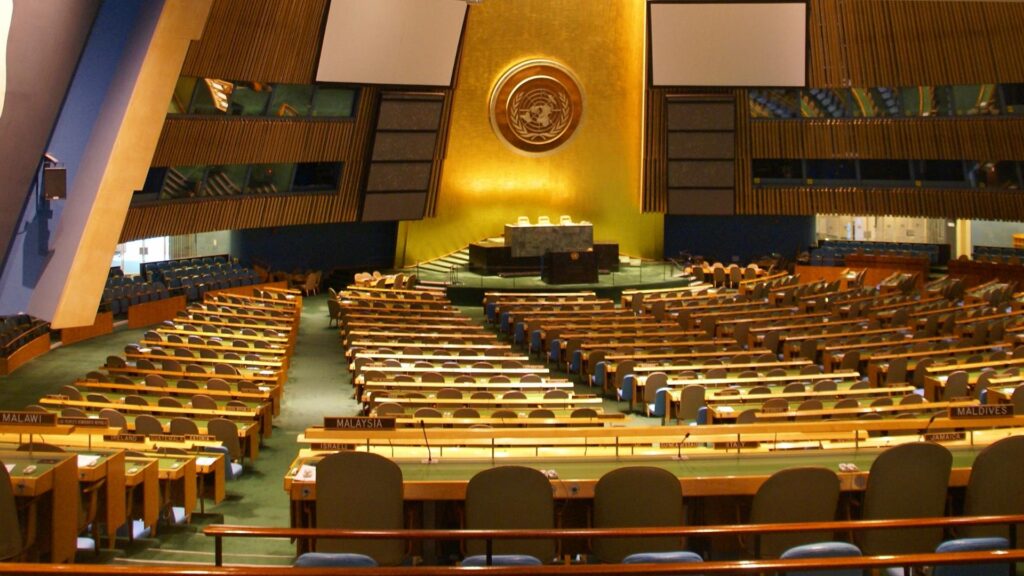

Following a hiatus in gatherings in-person, this year’s UN General Assembly is set to bring together a high number of participants and heads of state. It has a sizeable agenda to run through under the theme: “A watershed moment: transformative solutions to interlocking challenges”. But to what extent is the General Assembly (GA) covering digital issues?
Concurrent and spiralling global crises are high on this year’s agenda. The 77th GA has a focus on the Sustainable Development Goals (SDGs), following ample recognition of reversals in previous gains. A central event is the Transforming Education Summit, focussed on advancing SDG 4, and seeking solutions following pandemic-related losses. Also prominent on the agenda are ending the pandemic, responding to the food security crisis, and invigorating efforts to address climate change.
The pressure to progress digital cooperation is not absent. Despite the lack of head of state level events centred on digital issues, there are multiple events on the margins of this year’s GA that have a cross-cutting digital focus and cover digital development. However, sustained dialogue is needed to deliver on the UN Secretary General’s (UN SG) ambitious digital programme. Shared at last year’s General Assembly, the UN SG’s “Our Common Agenda” will culminate in a Summit of the Future at the 79th UNGA.
Digital stakes are high. To progress digital commitments, the UN SG has tasked the Office of the Envoy on Technology to develop a Global Digital Compact for the Summit of the Future. The Tech Envoy, Mr Amandeep Gill, will have a challenging job. Not only will he need to convene multi-stakeholder dialogue on new issues for the UN, but he will have to find consensus among both traditional interlocutors and new ones, like the private sector. This means a more complex dialogue that will also require more time to agree outcomes that work for all.
The calls for tapping into the benefits of the digital transformation are many, but the actions to match remain insufficient. This year’s GA is focussing on critical crises. The next twelve months may bring yet more challenges. Next year’s General Assembly should include an expanded focus on how innovation and technology can contribute to tackling crises and achieving the SDGs. The UN SG’s own call for bolstered international solidarity in preparation for the Summit of the Future brings momentum for shared solutions.
The UN General Assembly is a catalyst for international cooperation. It generates political capital to deal with multifold challenges. Ahead of the Summit of the Future, next year’s GA should provide a platform to strengthen digital cooperation. It can serve as a springboard to activate the full repertoire of capabilities across actors – government, civil society, private sector and international organisations. The 78th GA can pave the way for a Global Digital Compact that has broad ownership, creates co-responsibility for implementation, and supports the UN SG’s vision set out in “Our Common Agenda”.
For more information on the UN’s consultations ahead of the Summit of the Future and how that impacts your business, or to contribute your views to the Global Digital Compact on developing norms and practices that work internationally, please contact Gordon Mackay at [email protected] or Luminita Tuchel [email protected].
